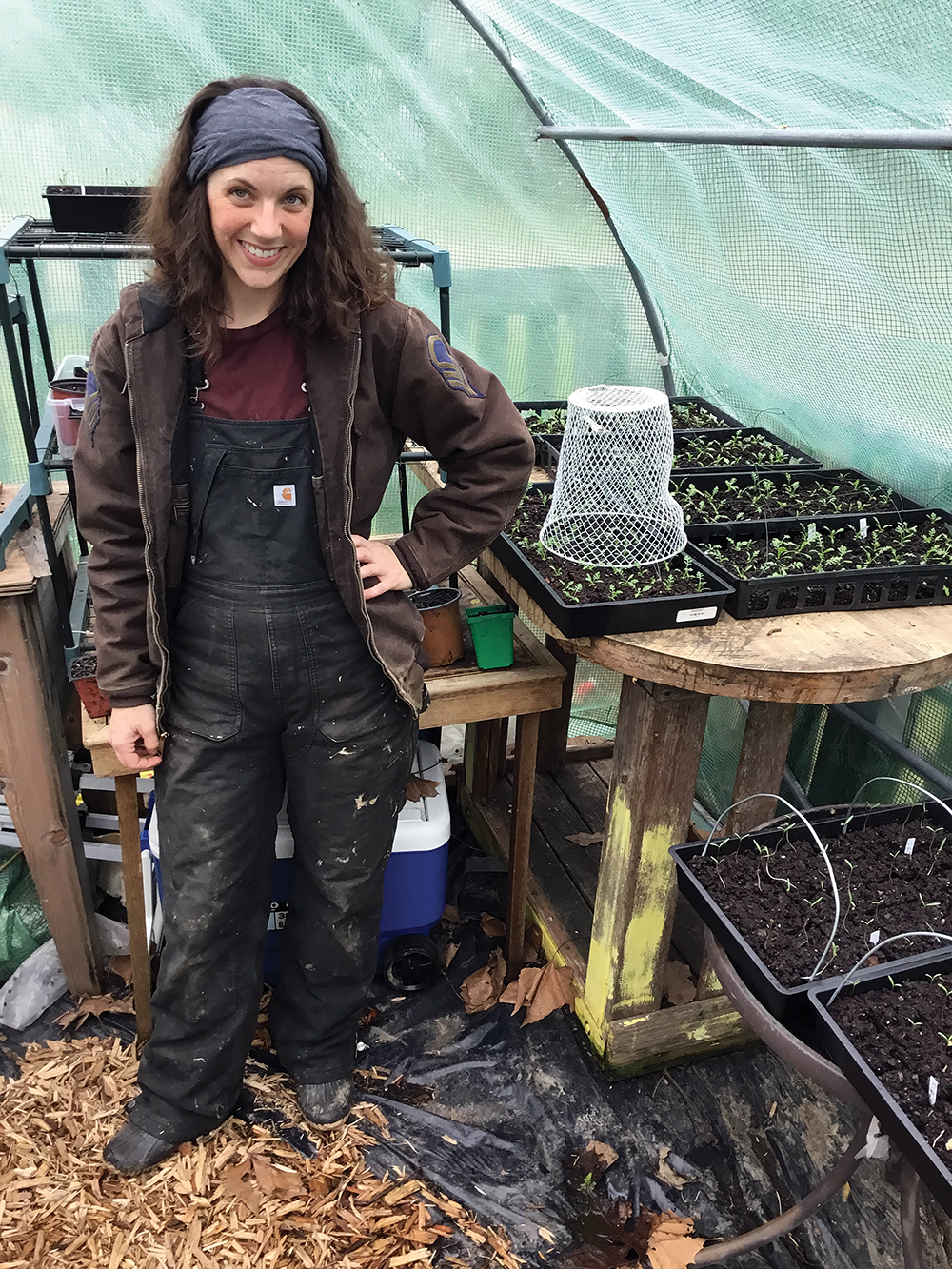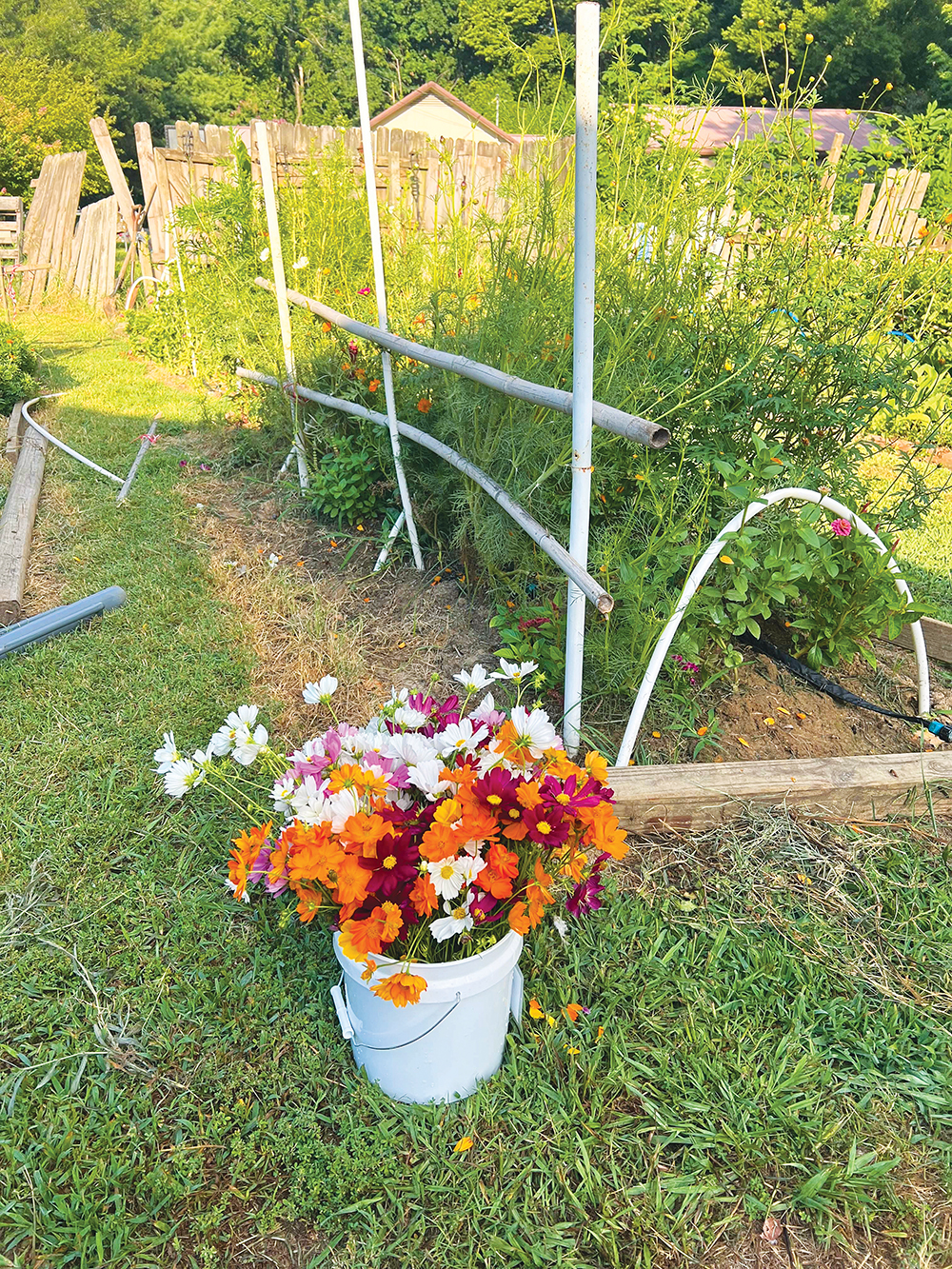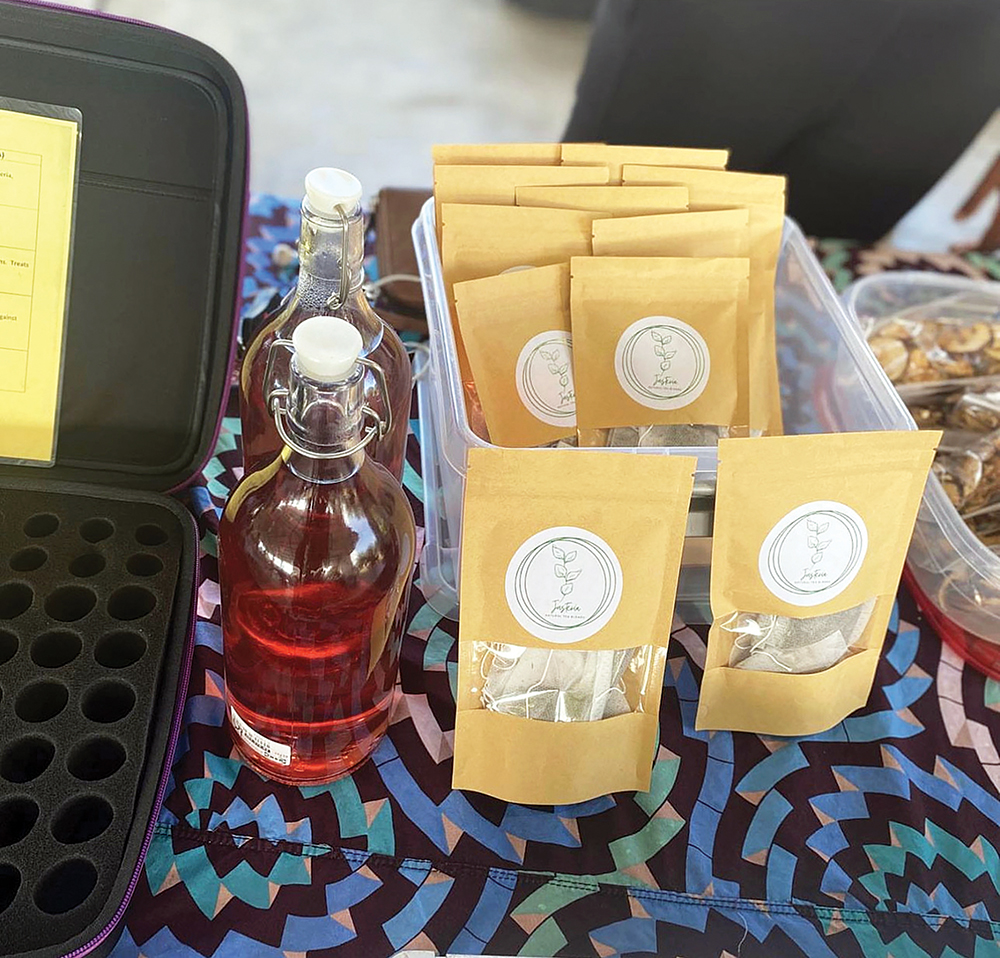With every day being declared a national day of something lately, celebration fatigue can set in, but there’s one such event that should be taken more seriously: National Women in Agriculture Day, slated for next Friday, March 24th. To find the rationale for such a recognition, one need look no further than one’s own mind. “We think of old-fashioned farming as a man’s occupation,” says one local female farmer, reflecting on the unconscious, mythic figures that populate most people’s mental landscape from the first time a child sings “Old MacDonald.” Meanwhile, the reality is considerably more complex and always evolving.
The agricultural world has been catching up to this fact for some time, most likely beginning with the formation of the group Women Involved in Farm Economics (WIFE) in Nebraska in 1976. That led to affiliated groups forming in other states, and by 1987 WIFE was suing the United States Department of Agriculture (USDA) over a woman’s right to continue receiving benefits for farmland she owned even after marrying. That caused the federal agency to take women’s roles on farms more seriously, and today the USDA actively promotes that mindset with an office dedicated to the concept.
Other independent groups have organized around the principle as well, namely the National Women in Agriculture Association, with chapters in every state, not to mention countless local and regional support groups. And it would seem the recognition and organization of women are having an impact. The USDA Economic Research Service found that by 2007, women operated 14 percent of all U.S. farms, up from 5 percent in 1978. More recently, 51 percent of all farming operations in the United States had at least one woman operator, according to the 2019 Agricultural Resource Management Survey (ARMS), and women were the “principal operator,” meaning they are primarily responsible for the day-to-day operation of the farm, on 14 percent of operations. In 37 percent of operations, women were the “secondary operators.” And the conversation continues; Successful Farming magazine now lists more than a dozen conferences on the topic of women in farming this year alone.
All of which has prompted the Memphis Flyer to see how these trends have played out closer to home. Here, then, are three examples of strong women farmers of the Mid-South who are contributing to the above trends in significant — and unexpected — ways.

Josephine Alexander, Tubby Creek Farm
For those who frequent the Cooper-Young Community Farmers Market, Josephine and Randy Alexander have been familiar faces since 2011, bringing a wide variety of “certified naturally grown” produce to the market, to local chefs, and to members of their Community Supported Agriculture (CSA) program. In some ways, the Alexanders represent how women are typically involved in the farming game, as half of a couple committed to raising a family in the countryside. Yet they buck such trends as well. Due to injuries sustained in his early 20s, Randy is a quadriplegic and relies on a wheelchair for mobility. He’s developed ingenious work-arounds, but this fact alone means the couple defies any simple gender-based conventions of farm labor.
Luckily, Josephine has risen to the occasion with a philosophical disposition that leads her to question conventional gender roles. “There’s a lot of fraught territory when you start talking about gender,” she muses. “You don’t want to make generalizations about one person’s experience.” Alexander also notes that women in farming is nothing new. “Don’t you think women were tending the vegetable gardens on the old homesteads?” she asks. “At the farmers market, I do get some of the classic ‘Did you grow all this?’ questions. I don’t know where that question’s coming from. Is it women as farmers or women as businesspeople that folks find surprising? What is it that we find unique now about women as farmers? When we think about farming as being a man’s arena, and I think we have for a long time, is it because we don’t see women as business owners and business leaders? Or is it the act of producing and driving tractors and doing all the other non-feminine things?”
In any case, Alexander doesn’t let others’ perceptions slow her down. “To say that I don’t encounter sexism in rural Mississippi would be ridiculous, but I think I get around a lot of it by being the kind of woman who lives outside normal gender roles anyway. I present myself more as a person who works. I’m usually muddy; I don’t pay a lot of attention to my appearance. Maybe that serves to make me seem more legitimate, especially now that we’ve been farming a while, and we’ve established ourselves as a successful farm. I don’t think anyone thinks twice about it. It’s accepted that women can be successful farmers. And certainly in the farming community, there’s lots of successful women.”
If sexism ever rears its ugly head, Alexander says, it’s most often related to being a boss. “I have at times had to direct men who are not open to taking instruction from a woman, which led to bad results. It wasn’t because I was a farmer; it was because I was a woman. These men were unwilling to see me in a leadership position, and then deferred to someone who didn’t know what they were talking about and ended up costing us extra money.” Yet even that issue is minimized by who tends to work for Tubby Creek. “Another interesting trend: We almost exclusively employ women. We just have more women apply. Certainly there are exceptions, but we get mostly women who work for us for multiple seasons.”
Beyond that, there is that special issue that women farmers with families face: motherhood. Yet the Alexanders have managed to raise their 5-year-old son Cooper with aplomb, partly because their farming methods were in place for years before Josephine’s pregnancy. “We made a lot of plans ahead of time and tried to think about the things on the farm that only I have the capacity to do. What can we do to make this so anyone could do this job? Because we didn’t know, never having had children, how much my mind would be in the game. Would my thinking be impaired, and for how long? Not only would we not have my labor; we also might not have my brain.”
As it turned out, Alexander credits motherhood with actually preserving her mental health. “Having a kid, for me, was really good in terms of putting things in balance,” she says. “On the one hand, I need to be out there farming. I need to get away from my kid, and from cooking. At the same time, I can’t be married to the farm. You can’t do crazy farm stuff like you did in the early days, when you slept outside with the chickens or the goats. But I have a lot more balance in my life now because of Cooper. I can’t abuse myself for the farm. And I don’t want to because I don’t want him to resent farming as something that takes his mom away from him. I want it to be something he enjoys. So I think that having a kid has made me a better farmer.”

Eva Brewer, Blackspring Farms
In contrast, Eva Brewer is both a single mother and a relative newcomer to farming. But she’s making it work as well, on her terms. When her career as a member of the local International Alliance of Theatrical Stage Employees (IATSE) chapter was disrupted by Covid in 2020, she decided to add flower farming to her repertoire of income streams. “When I found out about this house,” she recalls of finding a rental west of Millington, “and the prospect of having an acre of sunny land, I thought about growing vegetables. Then I realized it’s just so complicated, fighting wildlife that’s eating the same things I eat. So I went with flowers.”
Over the past three years, she’s made it work, despite having little help with childcare from the fathers of her two children. “I want to tell them, ‘Co-parenting is a thing!’” she says. With a teenage girl and a 9-year-old boy, she relies on her experience as a “professional organizer” — another income stream — to keep up. “I’m all about timers. I time myself on everything because I have so much to do. I write out my plan for the day and follow a schedule. I’ll set my timer for 20 minutes to do seedlings, and then I’m like, ‘Okay! Let’s do this!’”

She’s also developed a knack for creative marketing. “Last year I did farmers markets, but at one, I was directly across from another flower farmer and we had the same flowers. And she was not friendly! So I got out of there and I got out of farmers markets. I started doing pop-up sales at coffee shops instead because there’s no one else — I’m the star. Another thing is flower crowns. I weave them and sell them at festivals and things. Which has been shockingly lucrative. I’ve also been making ceramic vases and stuff on the wheel, to put flowers in. It’s all about the hustle.”
Brewer notes that the isolation of country life is one challenge of farming as a single mom. While she has many neighbors only a stone’s throw away, she says people keep to themselves. And part of that is due to her ambiguous place in the local social order. “Once my truck got stuck,” she recalls. “Someone went by on a four wheeler and I flagged him down. ‘Can you help me? Do you know anything about trucks?’ He said, ‘Ma’am, I’d love to help you, but my wife would be real unhappy with me if I sat here and talked to you.’ And he drove off! Nobody trusts me because I don’t have a dude around. Yet there are also women around here that love to tell me about their miserable marriages. They corner me because they see me as free. Which only makes their men hate me more.”
While Brewer is a stage hand adept at power tools and other skills, she finds the gender gap alive and well in the realm of farm equipment. “Machinery is a big problem on a woman-run farm,” she notes. “Getting it, keeping it up, using it, all of that is a problem for me. Just finding someone to work on the tiller is scary. It’s hard to know if you’re getting ripped off. There are no women who do that. No one! It’s so weird. Why is that? Why are there no women small engine repair people?”
And yet she soldiers on. This weekend, March 18th, she’ll reopen a shop next to Cafe Eclectic near Rhodes College, having given it a trial run last fall, where she’ll be selling her flowers, jewelry, and pottery. “The shop is going to be called Eclectic Gifts, with flowers brought to you by Blackspring Farms,” Brewer says. “I’m bringing in other people to sell there as well. Tara Henderson has all native plants and does landscaping. She sells both plants and landscaping plans. And Nancy Morrow also sells plants. She’s helped me out a lot, and she makes beautiful terrariums.”
Throughout all this, she has had one reliable partner: “When I moved in here I just had a little Jeep; then I bought this truck,” she says, pointing to her large pickup. “It’s my spirit animal.”

Dria Price and Halima Salazar, Justevia Teas
Brewer and Alexander, a single mother and a mother with a nuclear family, are only two examples of a whole host of women farmers in the area. Down in Oxford, Mississippi, one can find yet another variation on the theme: two married women who have pooled resources across their families’ separate plots of land to pursue a common vision. Dria Price and Halima Salazar own Justevia Teas, selling their custom blends at a local farmers market and at Oxford’s Chicory Market shop. For them, tea is not just an afterthought, but a way for sustainable agriculture to have impacts on health and well-being.
With Price’s roots in Mississippi and Salazar’s in Nigeria, they’re unlikely partners, but Oxford’s international appeal has brought them together. “We met the same farmer, but at different times,” recalls Price. “He invited us out to his farm, and we just happened to go to his farm on the same day. That’s when we met. His family had been farming that land for generations, all the way back to slavery. We did work on that farm for a couple of years, and then we decided to branch off and start our own thing. As we began to learn more about farming and the importance of regenerative agriculture, we realized that our missions didn’t necessarily align.”

For Salazar, learning how to farm partly involved remembering the practices of her grandfather, an herbalist and farmer known for using herbs to heal members of the community. “I came to the U.S. to go to college, and I eventually got married,” she recalls. “I didn’t think anything of agriculture at all, even when I was a child watching my grandfather. I was just processing it subliminally. Then, as an adult, I went back home after being in the U.S. 13 years.” That homecoming, she says, was transformative, as she saw her grandfather’s knowledge differently. “I’m going, ‘Oh my gosh, these are the things that people are craving in other cultures, that I have all this access to.’ Plants growing in the wild, things you can just pick here and there to mix in your cooking. I missed that, being here [in the U.S.]. Then I thought, ‘Now I’m going back to the U.S.; how can I take this knowledge back with me?’ That’s how I got back into agriculture.”
For her part, Price came to agriculture through her interest in nutrition. “I was finishing up my master’s in nutrition when Halima and I met,” she says. “I thought it was interesting, how you can give someone a bean and they might not even know what a bean plant looks like. We’re so disconnected from our food that people don’t know where it comes from.”
Unlike many local farmers, the two focus more on herbs for their custom tea mixtures, but produce is also a part of their practice under their Gimbia’s Kitchen brand, through which they cater and host dining events (including one in Clarksdale on March 24th and 25th). It combines Salazar’s training as a chef and Price’s expertise in nutrition. “We grow a wide variety of herbs, mainly for the teas because that’s our biggest seller,” Price notes. “Last year we got into infused avocado oils. Some of the herbs and produce we grow, we also dry and infuse into our oils. We do produce for Gimbia’s Kitchen, like peppers, onions, tomatoes. And we use the herbs in that part of the business, too. We’re also seed keepers for a company called Truelove Seeds. Their mission is to connect people with seeds that are culturally relevant to them and their ancestors. So we’re growing a combination of Southern and West African seeds such as egusi, ewedu, Mississippi butter beans, white velvet okra — things that are very relevant to us and our culture.”
Beyond that, they’ve begun acting on a more international level. “Dria and I just started working with a farm in Nigeria, and we went there for about a month late last year,” says Salazar. “Their goal is to help more young women and mothers become farmers and own land and make a profit that can sustain their families.”
This dovetails with their mission back at home as well. These two women are playing the long game. As Salazar puts it, “I want my children and my great-grandchildren to grow up seeing people like me growing their food because I think that represents who has ownership over food. It’s such an integral part of our lives. Being farmers is a massive responsibility that Dria and I take very seriously because we know that, being Black farmers, we are representing such a minute population in the country. And we want to be paid well as farmers so people can see they can make it as farmers. We want kids to grow up and say, ‘I want to do that.’ Because this helps hold families together. That’s our goal.”

